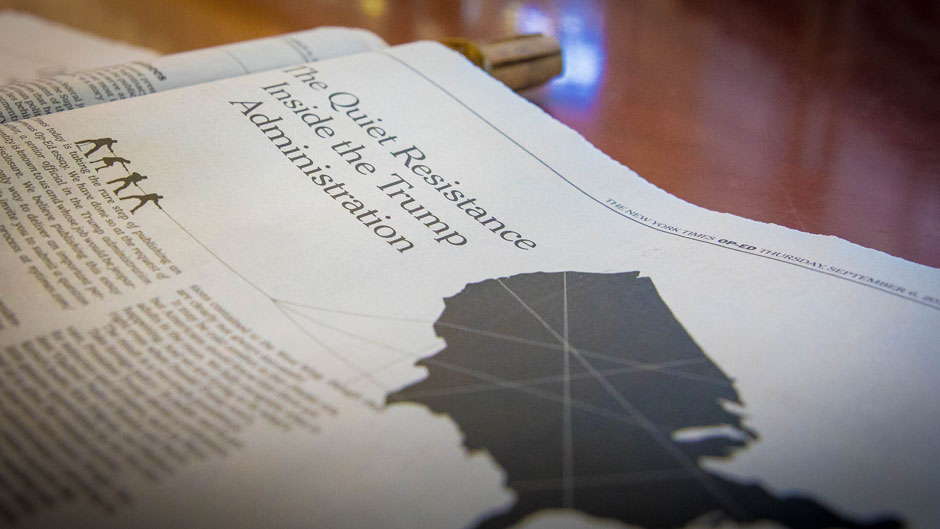The New York Times this week courageously put its credibility on the line by publishing an anonymous op-ed column.
By granting anonymity to the “senior official in the Trump administration” who described the active and serious internal resistance to the whims and erratic decisions of the President, the Times effectively said to the world this official is real and his or her words worth considering.
Unlike the unmoored trolls and purveyors of political fantasy on the Internet, mainstream news media organizations, from the Times to The Wall Street Journal, take seriously the use of anonymous sources. They know that anonymity can be a powerful tool for good or for evil. They withhold names only when truly necessary. A few confidential sources have burned the media. Most have served all of us well (think, The Washington Post, Watergate and Mark Felt, that is, Deep Throat).
When should a reputable news organization grant a source or writer anonymity? This is a question of ethics and good journalism. First, smart editors and producers insist that more than one responsible person in the organization know the identity of the source and understand his or her basis for knowing the information and reasons for not wanting to be named. Second, they only grant confidentiality when there is no other way of reporting the story and the issue is one of great public importance. No good journalist wants confidentiality used by a source merely to settle political grudges. The public interest must be paramount.
Now more than ever journalists also avoid leaving digital or other evidence that dogged investigators (or a spiteful president) might use to find and punish the unnamed source or writer—be this person a whistleblower or just fearful of retaliation for going public. Cell phones, email, credit cards, surveillance cameras, social media, and a variety of other devices make this complicated.
The reasons for such care should be obvious. The public relies on the judgment and reputation of professional journalists who know their credibility is at risk. No great news organization wants to be a mouthpiece for a politician or party. The stakes are even higher when an entire column is anonymous. By definition, a column represents the views of the writer and not a reported and balanced news report. The editors must assure themselves the writer is who he or she claims to be and the column reflects a responsible point of view and not just political opportunism.
People often ask if anonymity is primarily a legal question. While there is limited protection in many states and the courts for the press when it uses confidential sources or writers, the question is not at its heart a matter of law. The decision to publish is foremost a question of principle; and, this week the Times took the principled course and published, after due examination, the concerns and fears of a loyal American who happens to be a senior official and one of the adults in the Trump administration.
Samuel Terilli is an associate professor in the UM School of Communication, and is the former general counsel for the Miami Herald Publishing Company.
